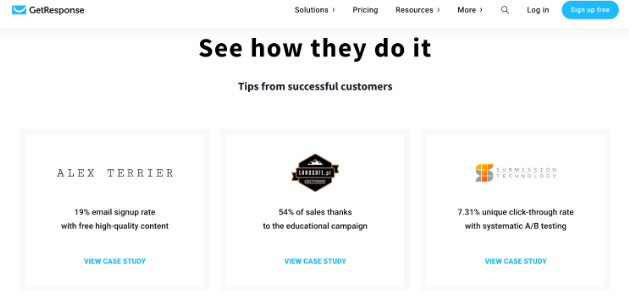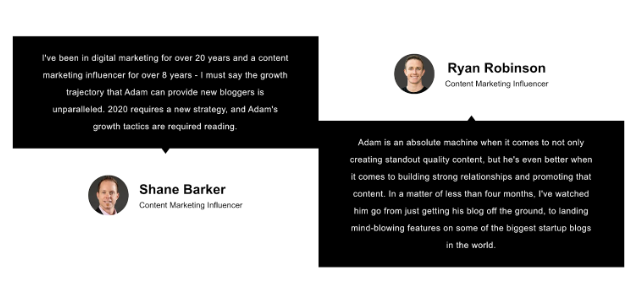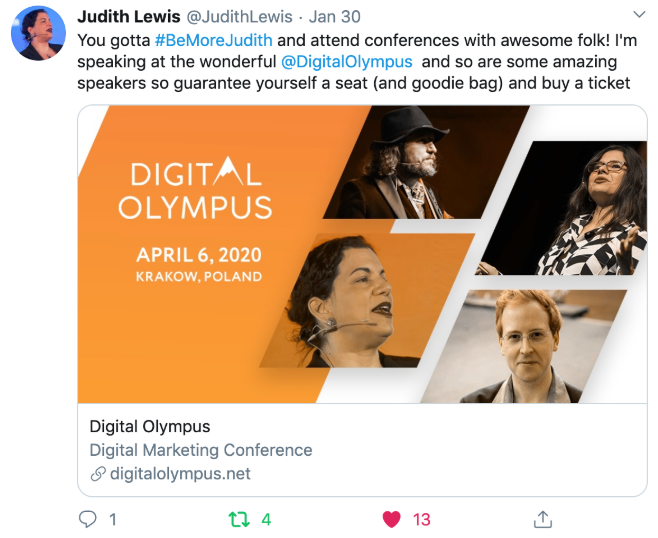Truth is, there are as many marketing strategies as there are marketers. Companies bet on SEO, PPC, social media, email marketing, and, of course, content marketing to raise brand awareness, drive traffic and generate leads for the business.
And speaking of content marketing, let’s take a look at some stats:
- There are more than 4.4 million blog posts published every year
- 55% of marketers mention blog content creation as their top inbound marketing priority
- Marketers are creating content for multiple audience segments with 3 audience segments being the most common.
- Content marketing gets three times more leads than paid search advertising
And last, but not least… Only 30% of marketers say their content marketing strategy is effective.
That doesn’t sound too good, does it?
In 2020 it’s becoming more important than ever to be close to your target audience and gain enough trust for them to buy what you have to offer. Building trust is not an easy task.
Luckily, we are here to help you make your brand not only trustworthy, but also highly likeable with user generated content.
What is user-generated content?
User-generated content (UGC) is simply content that’s created by your users. It can take the form of blog articles, social media posts, visuals, reviews or videos.
Your users might write about their experience with your product, they may brag about the cool features or even record an explainer video on how they use it for their own benefit.
Nowadays, more and more brands are deciding to incorporate this kind of content in their marketing strategy.
And for a good reason. Let’s take a look at what using UGC in your strategy can help you with.
Benefits of user-generated content
Here are some of the most important benefits of implementing user-generated content in your marketing:
- It builds trust and authenticity
If you share the content generated by your users, you boost your credibility as a brand. Your audience no longer sees you as a big faceless entity that’s delivering products or services, but rather as a group of people listening to and striving to help their customers’ problems.
The easiest way will be asking your loyal clients to share what kind of benefits they got thanks to your products or services. In fact, Getresponse, a popular email marketing automation tool, interviewed their clients and set up a good number of success stories that help them:
- Social proof
Having strong social proof is crucial if you want your audience to make final purchase decisions more confidently. It can be leveraged in the form of a testimonial on your page, the video or a wall of reviews on the Capterra, G2, or your social media pages.
For instance, our good friend Adam Enfroy allocated on his main page a set of testimonials from digital marketing experts that essentially said to prospects “this guy will get you results.”
Remember, you could tell your audience that you’re amazing at what you do. But it’s far better if satisfied customers and partners do this for you. It’s more believable.
- You get free content
Content generated by your users is free and it would be a shame not to use it to your advantage. Not only is the content free, but a lot of the promotion costs you next to nothing, too!
Your users can also inspire you and help you find ways to generate new content ideas. Perhaps you won’t use the exact content they have produced, but you can use parts of it and add your own stuff to make it suitable for your needs.
In fact, many companies use free content generated by users in a form of “customer success stories” or testimonials to boost their social proof.
- Helps you promote your brand across new audiences
There’s a big chance that companies and experts that you’re going to partner up with on the content side of things have already built a decent presence. In that case, you’ll kill two birds with one stone – you’ll update your site with engaging content and get these newly published posts in front of the author’s community.
For instance, that’s how things work with our own Digital Olympus conference. We ask well-known experts to speak in front of our audience, and those speakers for sure promote our conference across their audience.
In the screenshot below, you can see that one of our speakers, Judith Lewis, is giving a massive shout-out to our upcoming conference:
Thanks Judith! Some of the people who follow Judith will surely do the same thing as her and sign up to our gig.
Now that you understand the benefits of user-generated content, it’s time to start using it to your advantage.
How to leverage the power of user-generated content?
Your customers want to have a say about your product or service. In the era of unlimited information flow your users can create their own content related to your brand and share it with their network within seconds. It’s a double-edged sword as the content can be both – positive as well as extremely negative.
It is your job to encourage your users to share their positive feelings about your brand and work toward converting them into your brand’s advocates. And once they do, it’s important you know how to use this to your business’s advantage.
So, here are a few practical tips to get you started.
Add reviews and testimonials to your website
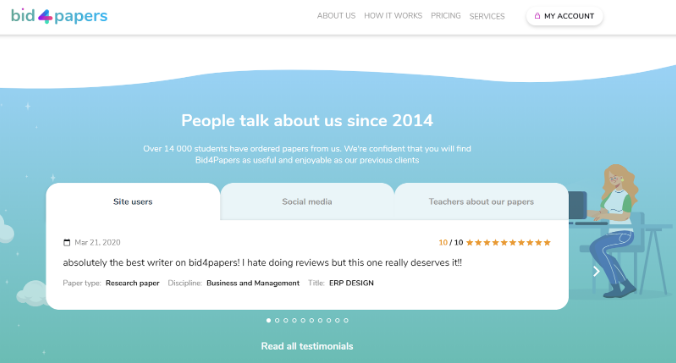
In fact, including testimonials on your website is one of the best landing page practices if you care about coming across as a credible business. Nothing works better than an authentic review on how great your product or service is, and how it helped others achieve their own goals.
People don’t trust marketers, but they do trust the good ol’ word-of-mouth. And if a prospect is unsure about your brand (or has never heard of you before), a positive review might be the one thing that persuades them to take the plunge.
Where possible, use numbers, too.
Re-publish your audience’s content
For example, this is the recently retweeted post by Tidio, where they’ve shared the success of their customers:
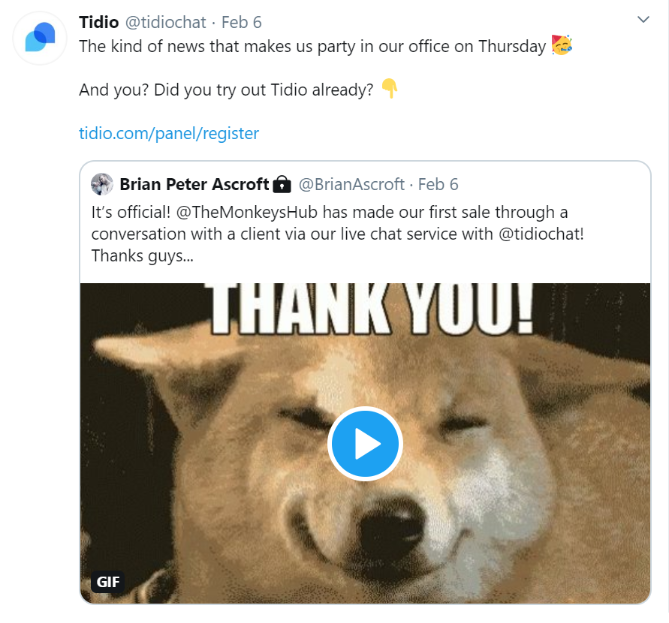
As you can see, one of their customers shared their story about making their first sale using Tidio. Making sales is something that all of Tidio’s potentially interested customers want to achieve. And boom – someone has achieved it and attributed their success to Tidio. That’s a great example of a powerful social proof.
This is one of the very effective ways to generate more leads with content that’s not only free, but also boosts your credibility.
You can do it across all social media platforms: Facebook, Twitter or Instagram. You can also use the content published on blogs and forums and attribute it to the right people if you decide to use it.
Use social listening to improve your marketing
Build a loyal online community

Run marketing campaigns
- Prove that you care about what your audience has to say
- Save time and money as the content is free
- Boost your social proof
Use Social Walls To Boost Your UGC effect
Social walls are a popular tool used to aggregate and display user-generated content (UGC) from social media platforms on websites, digital displays, and events.
By doing so, social walls can help organizations increase engagement by displaying real-time UGC from users. Social walls can increase engagement and interaction with the audience. It gives a sense of community and fosters a sense of belonging among the audience.
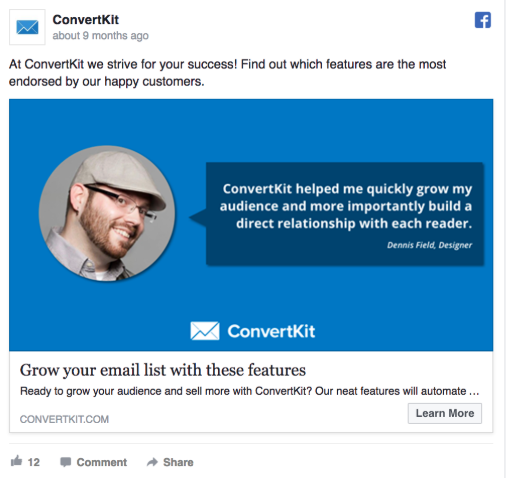
I don’t know about you, but after seeing this I’d like to grow my audience as quickly as Dennis did!
Implement content generated by users in your email marketing
Email marketing is powerful. So much so, that 78% of businesses claim to use it for their lead generation efforts. That’s because people still read emails, especially when they come from the companies they like and trust. Some of them are just waiting for the right email from you in order to take an action and convert into a paying customer.
So why not use this channel to share your user generated content (and convince people to take an action)?
You could include testimonials in your emails where your customers share their own personal experiences with your services with other users. Adding real-life examples and case studies to emails is just a great way to show readers how your services have helped others – and what they can do for them.
Start a referral program with UCG
Another good way to leverage the power of user-generated content is to set up referral programs. You can use a tool such as ReferralCandy to get started.
Essentially, creating a referral program turns your audience into your brand’s ambassadors and often encourages them to produce their own content related to your company – it can take the form of social media posts, videos or blog articles.
Conclusion
User-generated content is a great way to double down on your content marketing strategy. A lot of the work is done for you by your customers, and because it produces great results, it’s pretty much a sin not to exploit it.
Make a start by reaching out to your customers and see who’d be willing to do you a favour here. Once you’re up and running, you should soon see that user-generated content increases your social proof and your sales.

